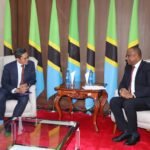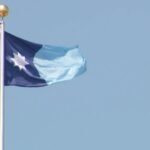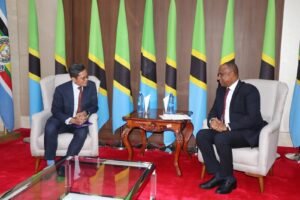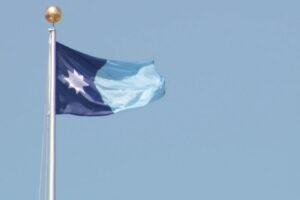The World Bank Group has urged Nigeria to take measures to reduce government’s borrowing from the Central Bank as part of an effort to address inflationary pressures on the economy.
This recommendation was made by Alex Sienaert, the World Bank’s Lead Economist for Nigeria, on Thursday during an economic review session held at the Lagos Business School.
While commending the Nigerian government for recent economic reforms, Sienaert urged that the reforms be sustained, as this is the only way to facilitate economic recovery and achieve substantial growth in the near future.
He mentioned the significant increase in petrol prices as one of the major impacts of the reforms, an action that has placed pressure on the economy.
To combat inflation, Sienaert suggested implementing several strategies, including reducing subsidised Central Bank lending to medium and large firms as well as reducing government borrowing from the Central Bank.
These measures are aimed at curbing the increase in the money supply and, in turn, reducing inflation. Additionally, Sienaert proposed replacing imports with foreign exchange restrictions through tariffs.
He said, “The whole agenda of tackling inflation is obviously a huge one. Some ideas include reducing subsidised CBN lending to medium and large firms and the government borrowing from the CBN.
“All of these things increase the money supply, and reducing that will be helpful to reduce inflation, and then replacing imports with FX restrictions with tariffs.”
Regarding the government’s plan to disburse N8,000 as palliatives following the removal of fuel subsidy, Sienaert expressed optimism that this cash transfer could positively impact approximately 50 percent of Nigerians by increasing their available earnings and income by around 10 percent.
He argued that this extra financial support would help many households avoid difficult decisions like skipping meals, pulling children out of school, or forgoing medical treatment.
Addressing concerns about the cost of the cash transfer programme, Sienaert compared it to the savings from the subsidy removal, noting that the expenditure on cash transfers would be relatively small in comparison to the resources freed up. He emphasised that the benefits for vulnerable households outweigh the costs.
He said, “The other thing we often hear is that N5,000 or N8,000 is a trivial amount of money. I think people will be shocked to know that for a huge number of Nigerian households, it is a very significant amount of money.
“I believe the statistics are that about 50 percent of Nigerian households are on less than N60,000 a month. So, if you are giving them N5,000 or N8,000 extra for six months to help tie them over, you are increasing their earnings and available incomes by on the order of 10 percent. For many households, it would be meaningful.”
However, the proposed cash transfer plan faced opposition from organised labour and some economists, who argued that the N8,000 payout would not sufficiently alleviate the impact of the subsidy removal.
Funmi Sessi, Chairman of the Nigeria Labour Congress, Lagos chapter, expressed doubts about the adequacy of the cash transfer to support a family for a month, considering the rising prices of goods and services due to the subsidy removal.
As a response to the criticisms, the Federal Government reevaluated its plans and announced that it is reviewing the proposed cash transfer programme.
Source: Business Day











